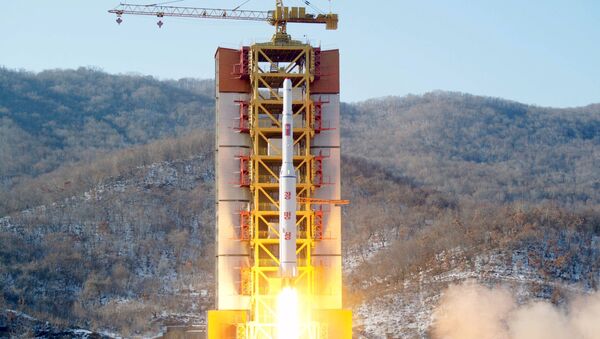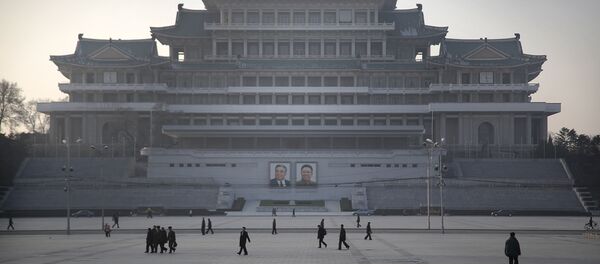"The Act seems primarily designed to force China’s hand and to get it, North Korea’s lone major business ally, to cease trade with North Korea," US Defense Trade Advisory Group member Lawrence Ward said.
The new legislation, Ward noted, could mean the United States would soon implement sanctions against Chinese persons and entities that conduct trade with North Korea, thereby compelling Beijing to stop conducting any business with it.
"It is difficult to imagine that China will simply lay down and allow the United States to effectively make this trade decision for China," Ward claimed.
The United States, Ward explained, has now encouraged all UN member states to implement sanctions against any person, including any financial institution, that facilitates proliferation, illicit activities, arms trafficking, cyberterrorism, import of luxury goods, among other actions, by the North Korean government.
The sanctions "mandate" the president to implement asset blocking powers against any violators, unlike previous measures wherein the implementation was optional, Ward added.
Earlier on Friday, the Chinese Foreign Ministry said the introduction of new US sanctions against North Korea would not improve the situation and called on both sides to show restraint.
Peterson Institute for International Economics Research Analyst Kent Boydston told Sputnik that Beijing routinely repeated standard diplomatic language calling for all parties to exercise restraint after such incidents, but this time was different because the new US sanctions might directly affect Chinese trade policies.
"In this case, China has some reason for concern that mandatory enforcement requirements in the US legislation may cause complications for Chinese trade," Boydston stated.
There has been speculation for years that North Korea has become more of a liability than a friend to China, Boydston suggested, but Beijing has done very little to put real pressure on Pyongyang and is instead lax on sanctions enforcement and waters down UN sanctions resolutions.
The more salient issue for China, Boydston added, is that compared to previous North Korean provocations this time there is significant momentum in South Korea to deploy US THAAD (Terminal High Altitude Air Defense) missiles to defend against growing North Korean missile capabilities.
Earlier this month, North Korea fired a long-range rocket to allegedly put a satellite into orbit in violation of a UN Security Council resolution. In January, Pyongyang declared that it had successfully carried out a hydrogen bomb test, triggering condemnation from the international community.



